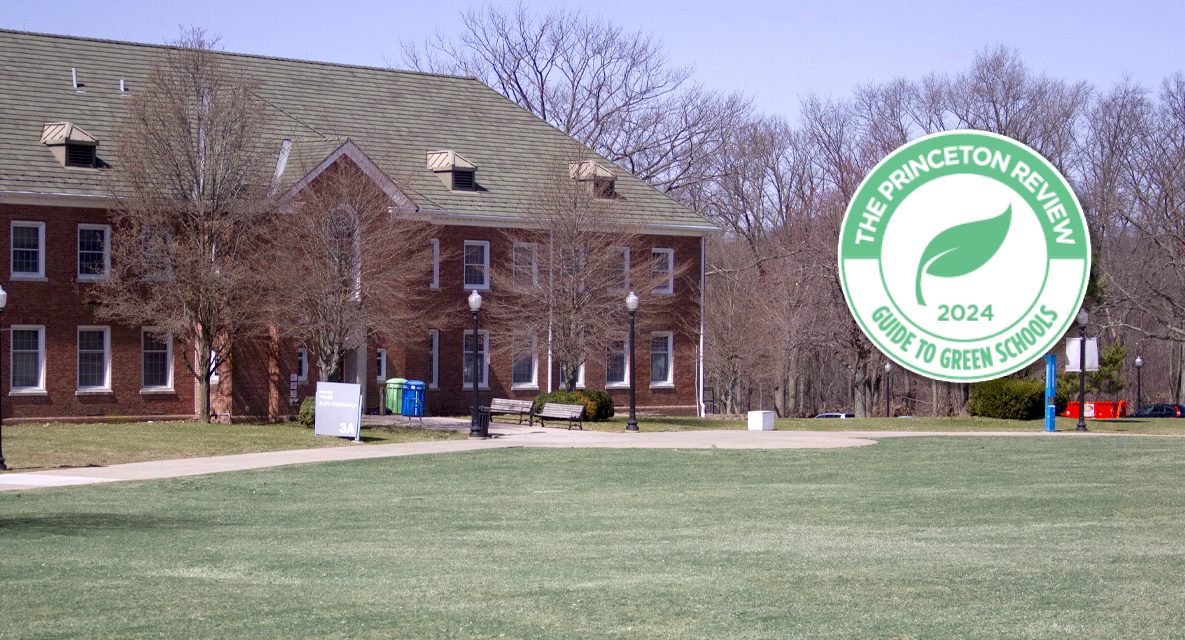For the third consecutive year, the College of Staten Island has been cited by The Princeton Review as one of the nation’s Top Green Colleges, it was announced last week. The Princeton Review analyzes several “Green Ratings” to make up its comprehensive list with CSI scoring high marks to land among the nation’s best.
“The College is a proud member of he Staten Island community, a community that embraces its legacy as the “borough of parks.”” said Dr. Timothy G. Lynch, President of the College of Staten Island. “Our support of green initiatives demonstrates our commitment to sustainability, in our educational endeavors and in our daily operations. We are gratified by this recognition and look forward to what the future holds for the campus and the community.”
“This ranking by The Princeton Review is very important to us,” echoed Nora Santiago, Sustainability Program Manager in the Office of Sustainable Community Planning. “We strive to do better every year, reaching milestones in many different ways. First, by preparing our students with new careers in the green economy by incorporating sustainability into our courses. Next, by refining our waste diversion operations to minimize waste we send to landfills.”
The Princeton Review tallies several inputs based on institutional data submitted by school administrators from across the country. Ratings are based on whether students have a quality of life on campus that is both healthy and sustainable, how well a school is preparing students for employment in an increasingly green economy, and how environmentally responsible a school’s policies are. Student opinion surveys are also tallied as part of the rankings system.
In all, The Princeton Review recognized 522 schools in total this year, with CSI once again a member of the distinguished list. The announcement comes on the heels of another successful year in sustainability, one that saw the College receive a Spirit Award from Daylight Hour, an annual social media campaign raising awareness about energy efficiency in the workplace.
CSI continues to anchor several sustainability initiatives on campus, including a new Zero Plastic Campus initiative. “This initiative will eliminate selling drinks in plastic bottles and using aluminum cans as a sustainable alternative, improve access to free water refills by installing more hydration stations on campus, and will include an educational campaign to encourage the use of refillable bottles in order to reduce plastic on campus and the community,” said Santiago.
Tree Campus USA is another sustainability project in its early stages, where students from the Engineering and Environmental Science Department and the Lucille and Jay Chazanoff School of Business are preparing an inventory of existing trees on campus using Geographic Information Systems (GIS). Using the campus as a living lab, students are encouraged to engage in projects, fostering sustainability and natural resources management.















